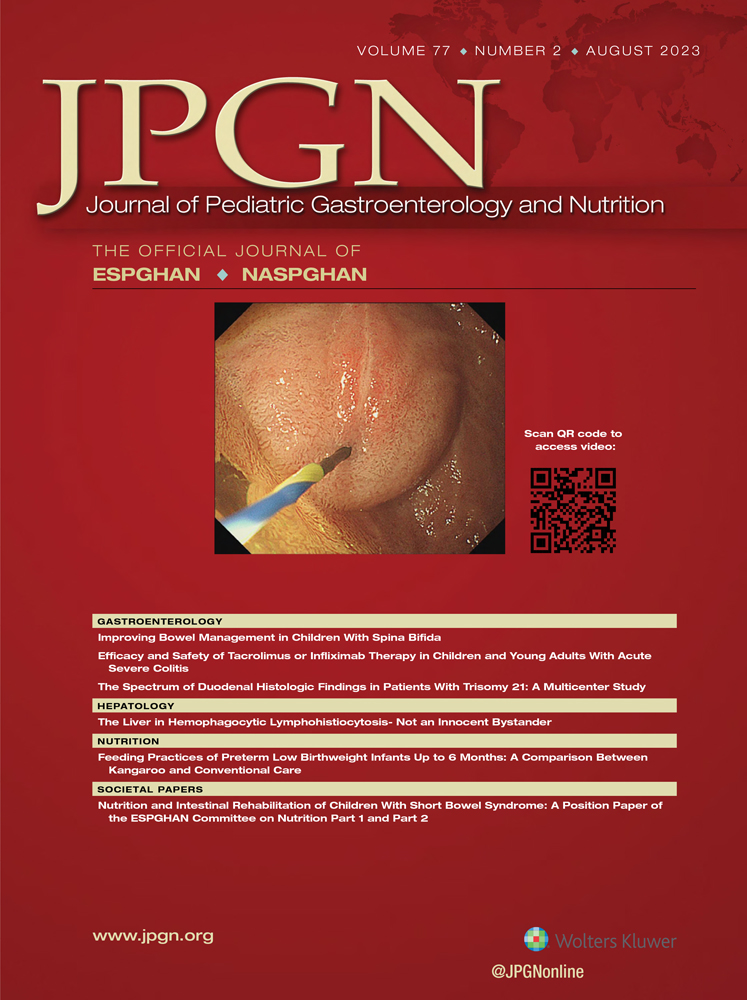Topic of the Month: Clinical Care
The Bidirectional Brain-Gut-Microbiome Axis in Pediatrics
What We Know and What Lies Ahead
Alexandra Kilgore MD,
Jaime Belkind-Gerson MD, MS,
Alexandra Kilgore MD
Digestive Health Institute, Children’s Hospital Colorado, University of Colorado School of Medicine, Aurora, CO
Search for more papers by this authorCorresponding Author
Jaime Belkind-Gerson MD, MS
Digestive Health Institute, Children’s Hospital Colorado, University of Colorado School of Medicine, Aurora, CO
Address correspondence and reprint requests to Jaime Belkind-Gerson, MD, MS, Director Neurogastroenterology and Motility Program, Digestive Health Institute, Children's Hospital Colorado, Associate Professor of Pediatrics, University of Colorado School of Medicine, 13123 East 16th Avenue, Admin Pavilion, 3rd Floor, C3417, Aurora, CO 80045 (e-mail: [email protected]).Search for more papers by this authorAlexandra Kilgore MD,
Jaime Belkind-Gerson MD, MS,
Alexandra Kilgore MD
Digestive Health Institute, Children’s Hospital Colorado, University of Colorado School of Medicine, Aurora, CO
Search for more papers by this authorCorresponding Author
Jaime Belkind-Gerson MD, MS
Digestive Health Institute, Children’s Hospital Colorado, University of Colorado School of Medicine, Aurora, CO
Address correspondence and reprint requests to Jaime Belkind-Gerson, MD, MS, Director Neurogastroenterology and Motility Program, Digestive Health Institute, Children's Hospital Colorado, Associate Professor of Pediatrics, University of Colorado School of Medicine, 13123 East 16th Avenue, Admin Pavilion, 3rd Floor, C3417, Aurora, CO 80045 (e-mail: [email protected]).Search for more papers by this authorThe authors report no conflicts of interest.
No abstract is available for this article.
REFERENCES
- 1.Horn J, Mayer DE, Chen S, Mayer EA. Role of diet and its effects on the gut microbiome in the pathophysiology of mental disorders. Transl Psychiatry 2022; 12: 164. doi:10.1038/s41398-022-01922-0.
- 2.Hayes W, Sahu S. The human microbiome: history and future. J Pharm Pharm Sci 2020; 23: 404–11. doi:10.18433/jpps31525.
- 3.Dominguez-Bello MG, Godoy-Vitorino F, Knight R, Blaser MJ. Role of the microbiome in human development. Gut 2019; 68: 1108–14. doi:10.1136/gutjnl-2018-317503.
- 4.Cox LM, Blaser MJ. Pathways in microbe-induced obesity. Cell Metab 2013; 17: 883–94. doi:10.1016/j.cmet.2013.05.004.
- 5.Westfall S, Caracci F, Estill M, Frolinger T, Shen L, Pasinetti GM. Chronic stress-induced depression and anxiety priming modulated by gut-brain-axis immunity. Front Immunol 2021; 12: 670500. doi:10.3389/fimmu.2021.670500.
- 6.Kelly JR, Borre Y, O’ Brien C, et al. Transferring the blues: depression-associated gut microbiota induces neurobehavioural changes in the rat. J Psychiatr Res 2016; 82: 109–18. doi:10.1016/j.jpsychires.2016.07.019.
- 7.Burokas A, Arboleya S, Moloney RD, et al. Targeting the microbiota-gut-brain axis: prebiotics have anxiolytic and antidepressant-like effects and reverse the impact of chronic stress in mice. Biol Psychiatry 2017; 82: 472–87. doi:10.1016/j.biopsych.2016.12.031.
- 8.Constante M, De Palma G, Lu J, et al. Saccharomyces boulardii CNCM I-745 modulates the microbiota-gut-brain axis in a humanized mouse model of Irritable Bowel Syndrome. Neurogastroenterol Motil 2021; 33: e13985. doi:10.1111/nmo.13985.
- 9.Vicentini FA, Keenan CM, Wallace LE, et al. Intestinal microbiota shapes gut physiology and regulates enteric neurons and glia. Microbiome 2021; 9: 210. doi:10.1186/s40168-021-01165-z.
- 10.Marshall JK, Thabane M, Garg AX, et al. Incidence and epidemiology of irritable bowel syndrome after a large waterborne outbreak of bacterial dysentery. Gastroenterology 2006; 131: 445–50; quiz 660. doi:10.1053/j.gastro.2006.05.053.
- 11.Saurman V, Margolis KG, Luna RA. Autism spectrum disorder as a brain-gut-microbiome axis disorder. Dig Dis Sci 2020; 65: 818–28. doi:10.1007/s10620-020-06133-5.
- 12.Jacobs JP, Gupta A, Bhatt RR, et al. Cognitive behavioral therapy for irritable bowel syndrome induces bidirectional alterations in the brain-gut-microbiome axis associated with gastrointestinal symptom improvement. Microbiome 2021; 9: 236. doi:10.1186/s40168-021-01188-6.




